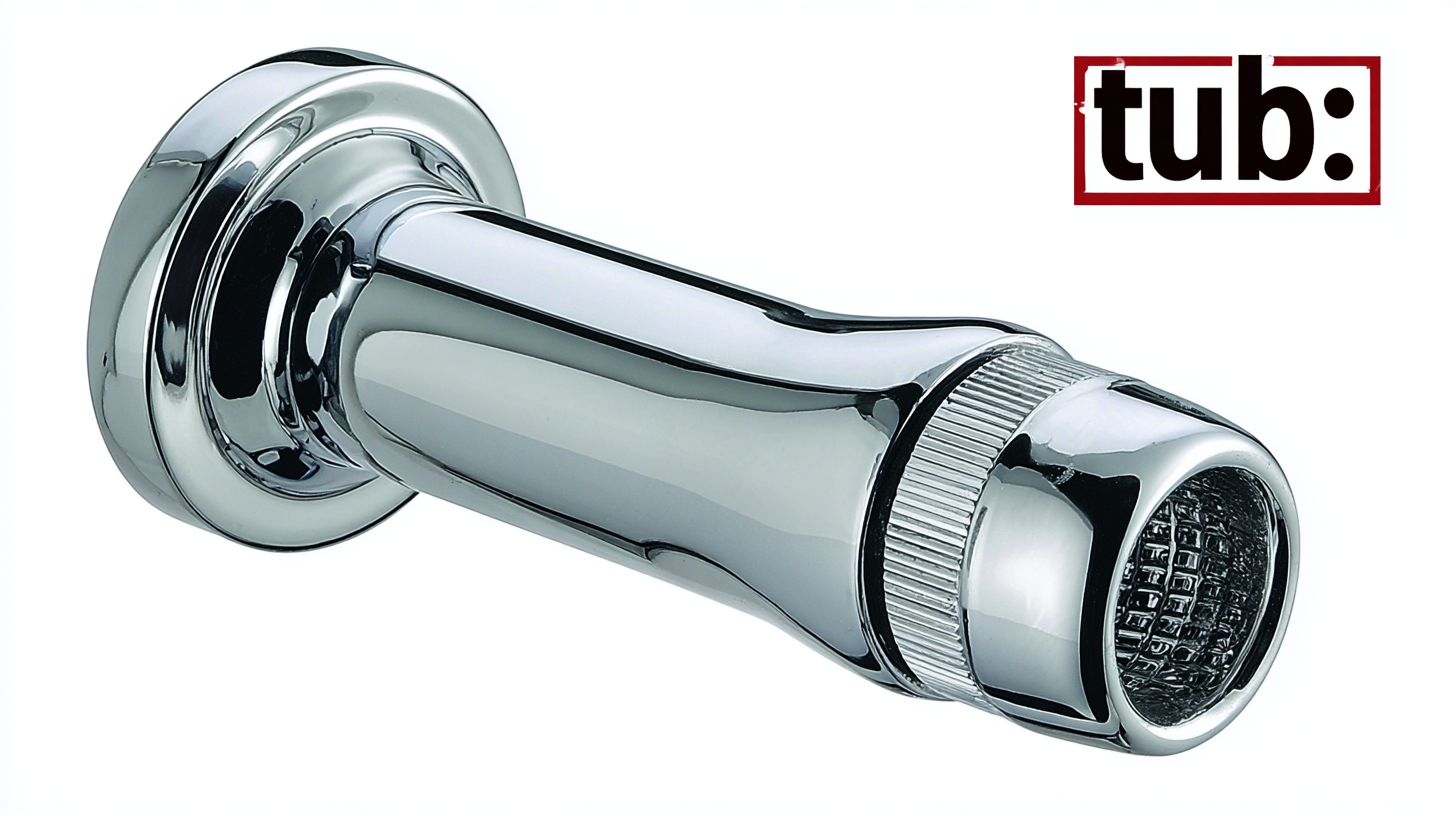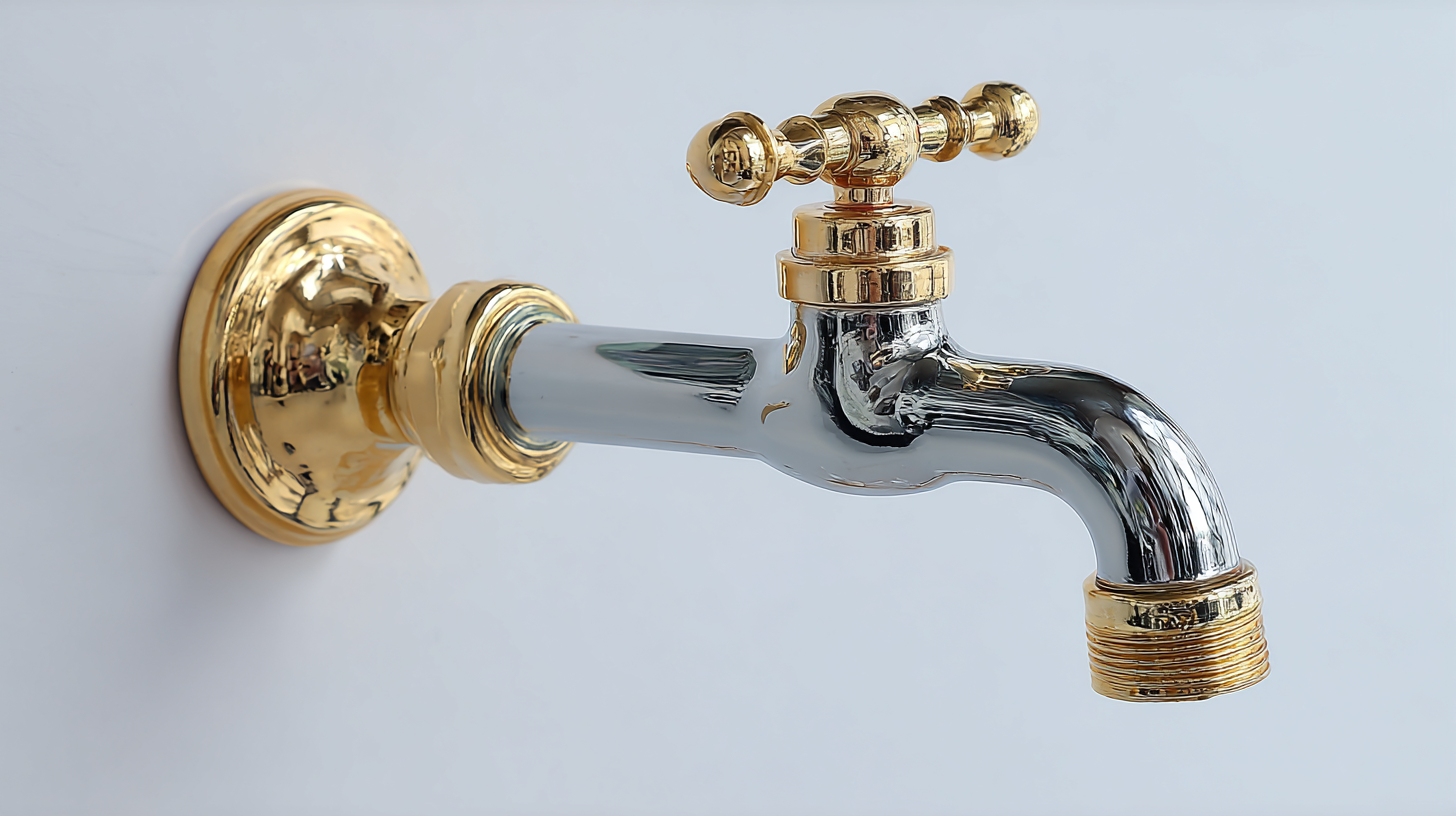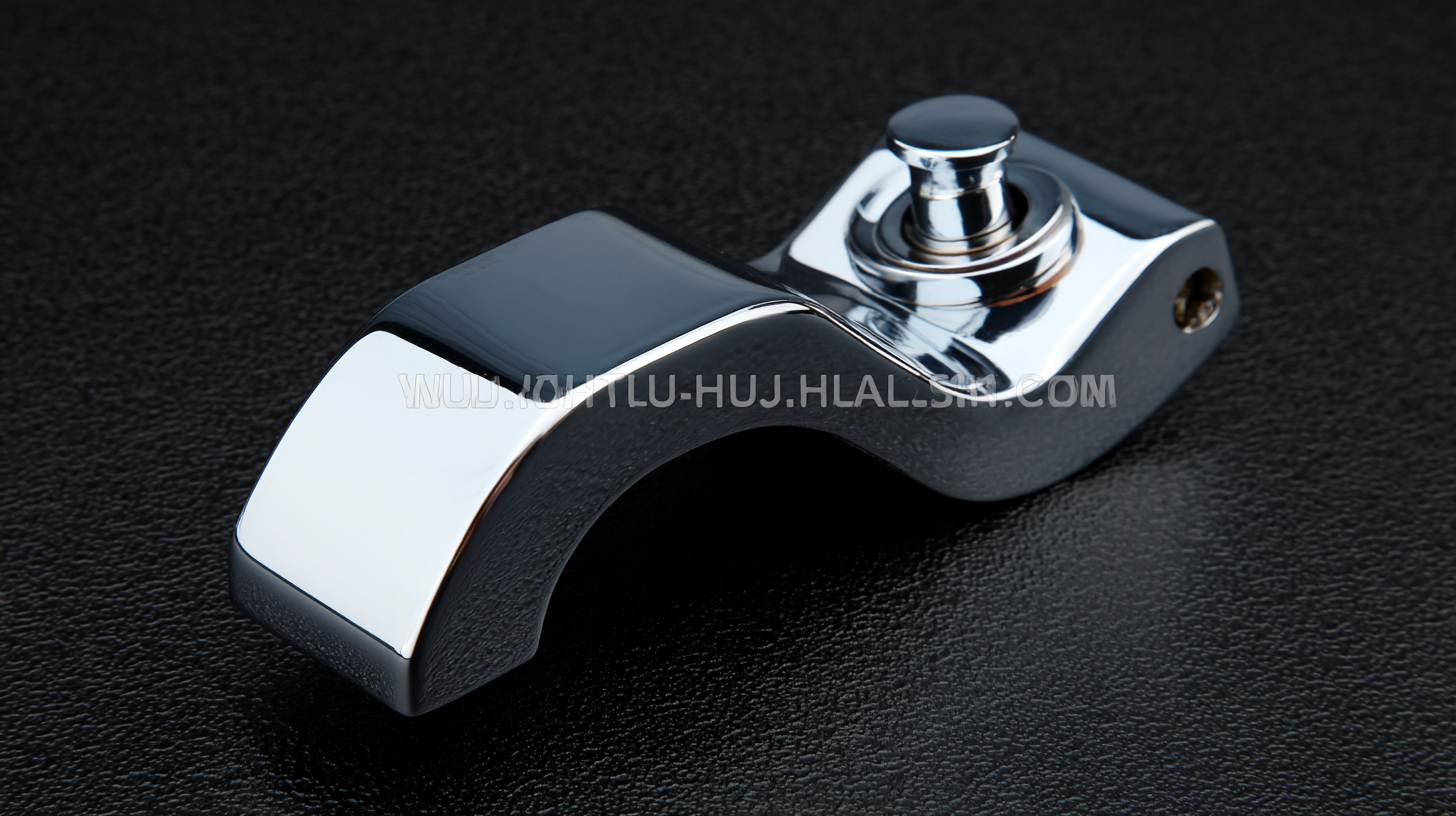The global market for kitchen faucets, including the increasingly popular
Bathtub Kitchen Spout, is projected to reach
$19.5 billion by 2026, according to a recent report by
Fortune Business Insights. This surge is driven by rising consumer preferences for multifunctional
and high-quality kitchen fixtures, and the demand for stylish designs that enhance kitchen aesthetics. In
particular, products crafted in China stand out for their
unmatched quality, innovative design, and competitive pricing,
enabling them to penetrate both the domestic and international markets effectively.
 With quality certifications and adherence to international standards,
Chinese manufacturers are setting new benchmarks for performance and reliability,
making the Bathtub Kitchen Spout an appealing choice for
homeowners and professionals alike. As customer expectations continue to elevate, understanding the reasons
behind the success of these products will be crucial for those in the industry.
With quality certifications and adherence to international standards,
Chinese manufacturers are setting new benchmarks for performance and reliability,
making the Bathtub Kitchen Spout an appealing choice for
homeowners and professionals alike. As customer expectations continue to elevate, understanding the reasons
behind the success of these products will be crucial for those in the industry.
The global demand for high-quality kitchen spouts, especially those manufactured in China, has surged impressively over the past few years. According to a recent market research report by Grand View Research, the global kitchen faucet market is expected to reach USD 21.5 billion by 2025, with a compound annual growth rate (CAGR) of 5.4% during the forecast period. This growth is largely driven by rising consumer preference for well-designed, durable kitchen fixtures that enhance the overall functionality and aesthetics of modern homes. Chinese manufacturers are at the forefront of this trend, producing spouts that not only meet rigorous international standards but also cater to diverse consumer preferences.
In particular, bathtub kitchen spouts have gained traction in the global market due to their essential role in enhancing the bathing experience. The convenience and elegance they add to bathrooms are increasingly recognized by homeowners and interior designers alike. Reports indicate that countries in North America and Europe are the largest consumers of these products, with an increasing shift towards purchasing from Asian suppliers, mainly because of the competitive pricing and superior craftsmanship offered by Chinese brands. Furthermore, the emphasis on eco-friendly materials and water-saving technologies has led to a surge in consumer interest, as leading Chinese manufacturers align their production with sustainable practices, thereby fulfilling the growing global demand for responsible and innovative home solutions.
The manufacture of high-quality kitchen spouts in China leverages advanced materials and technologies, ensuring a product that meets global satisfaction standards. Key materials include durable brass and corrosion-resistant stainless steel, which enhance longevity and performance. According to the latest industry analysis, the global faucet market was valued at approximately $48.9 billion in 2023, with projections reaching $118.4 billion by 2035, illustrating significant demand for quality kitchen fixtures.
In addition to the choice of materials, cutting-edge manufacturing technologies play a crucial role in the production of kitchen spouts. Automation and precision engineering not only streamline the manufacturing process but also ensure consistent quality across batches. As the smart faucet segment continues to grow, representing an increase in consumer preference for touchless activation and voice control, the emphasis on quality and innovation becomes even more pronounced.
Tips for selecting the best kitchen spout: always consider the material—opts for materials like stainless steel for durability. Additionally, look for features that enhance usability, such as pull-down designs and easy-clean finishes, to maximize your kitchen's functionality and style.

In the competitive market of bath fixtures, quality control standards play a crucial role in determining consumer satisfaction. High-quality kitchen spouts crafted in China have gained international acclaim, not just for their design but also for their exceptional performance. Stringent quality control measures ensure that each product meets global standards, resulting in a reliable and enjoyable experience for users. Companies that prioritize these standards can improve their reputation and foster customer loyalty, which is essential for sustained business success.
When selecting a bathtub kitchen spout, consumers should consider a few practical tips. First, look for products that come with certifications indicating compliance with international quality standards. This ensures that the item has undergone rigorous testing for durability and safety. Additionally, pay attention to customer reviews; real-world feedback can provide insights into the product's performance and longevity, further aiding in the decision-making process. Lastly, consider choosing spouts with a warranty, as this not only reflects the manufacturer's confidence in their product but also provides peace of mind to the buyer.
By focusing on quality control and making informed choices, consumers can enjoy the exceptional quality of bathtub kitchen spouts, ultimately enhancing their home experience.
| Product Type | Material | Quality Control Standard | Durability (Years) | Consumer Satisfaction Rate (%) |
|---|---|---|---|---|
| Kitchen Spout | Stainless Steel | ISO 9001 | 15 | 95 |
| Bathtub Spout | Brass | ASTM Standards | 20 | 90 |
| Shower Spout | Plastic | CE Marking | 10 | 85 |
| Wall-Mounted Spout | Copper | EN Standards | 18 | 92 |
The comparative analysis between Chinese bathtub kitchen spouts and their international competitors reveals striking insights into the luxury plumbing fixtures market. With the global faucet market projected to reach $118.4 billion by 2035, growing at a compound annual growth rate (CAGR) of 7.6%, it’s evident that consumer preferences are shifting towards high-quality, innovative solutions. Chinese manufacturers have significantly improved their production quality, offering spouts that integrate advanced technology with aesthetic design at competitive prices.
When comparing the options available, Chinese bathtub kitchen spouts stand out for their exceptional craftsmanship and affordability. Many of these products are crafted using high-grade materials, which not only enhance durability but also contribute to elegant home aesthetics. International brands may often focus on their heritage and branding, but for discerning consumers, the value for money and quality offered by Chinese alternatives cannot be overlooked.
**Tips:**
1. **Research Reviews:** Always check user reviews and ratings online to gauge real-world performance and durability of the products.
2. **Material Matters:** Pay attention to the materials used in the spouts; brass and stainless steel are generally more durable and resistant to corrosion.
3. **Warranty and Support:** Consider brands that offer solid warranties and customer support, reflecting their confidence in product quality.
The kitchen spout industry is rapidly evolving, with an increasing emphasis on eco-friendly innovations that align with global sustainability goals. Recent data from the International Kitchenware Association indicates that the demand for eco-conscious products has surged by over 30% in the last three years, reflecting a significant shift in consumer preferences towards sustainable materials and production processes. As a leading manufacturer, China has embraced this trend, integrating advanced technologies that minimize energy consumption and waste during kitchen spout production.

In addition to adopting renewable resources, manufacturers are focusing on innovative designs that enhance water efficiency. The World Wildlife Fund highlights that kitchen fixtures account for approximately 15% of global household water usage. By implementing low-flow mechanisms and smart water usage technologies, Chinese manufacturers are not only addressing environmental concerns but also providing consumers with practical solutions for reducing their water bills. These advancements not only contribute to a sustainable future but also position Chinese-made kitchen spouts as a top choice in the global market, promoting both quality and ecological responsibility.
